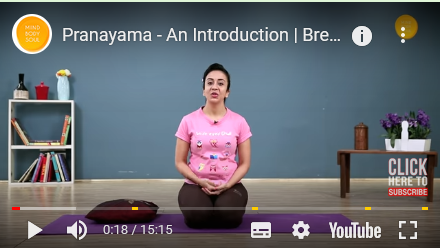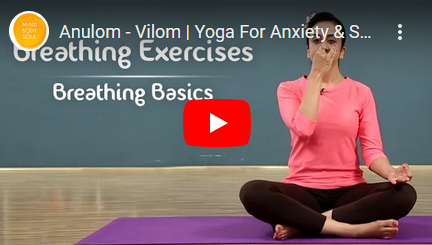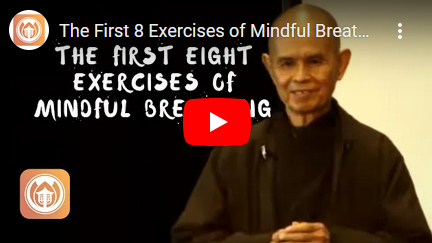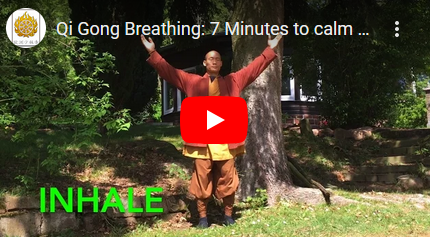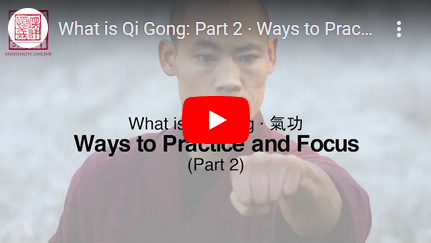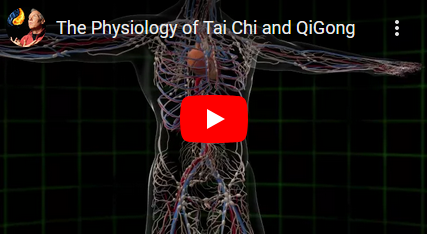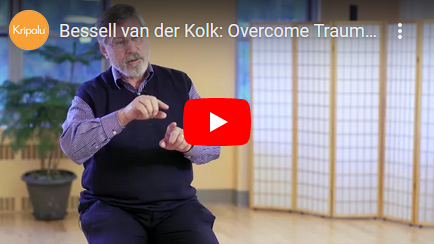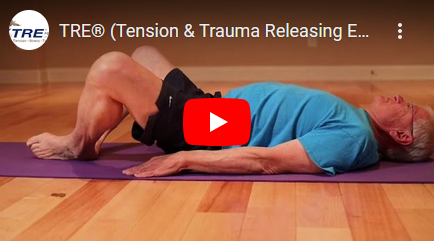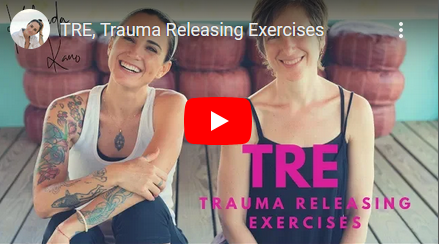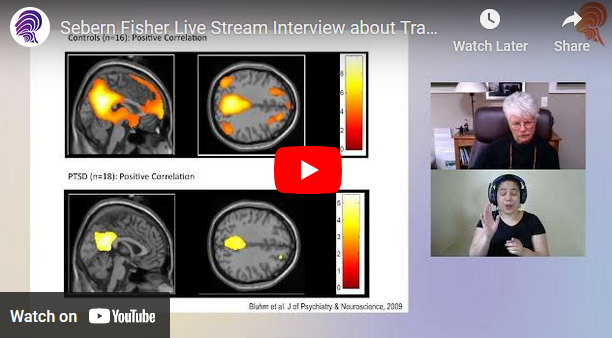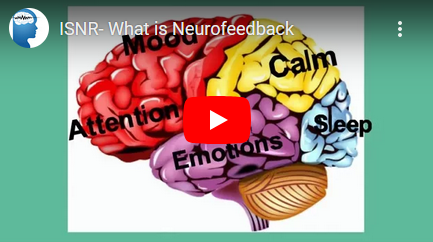VIDEOS
Note: You may need to turn your mobile device to landscape view!
To start with there are a number of related YouTube videos: Using the breath, Qi Gong, yoga and mindfulness to utilise the power of the Polyvagal system that links the mind and body, as well as the vital importance of sleep.
Then, below these you will find additional videos on a range of psychology and counselling-related topics, including:
- Anxiety and our body's autonomic nervous system
- Emotions (click to view 'Emotions & Feelings 101') and how to befriend them
- Self-compassion
- Shame
- Procrastination
- OCD (Obsessive Compulsive Disorder) aka 'Doubting Disease'
- Memory
- Attachment styles
- Narcissism
- Mindful parenting
- Interpersonal communication
- Relationships - and to find out why you will marry the 'wrong' person click here and solutions here - Domestic Violence documentary: See what you made me do
- Addiction - including online pornography addiction
- Adoption
- Hoarding - including Lifeline's 'Too much stuff' video and program
A very clear and highly personable introduction to basic deep breathing (pranayama) with guided practice.
Please note: Deep breathing can be done almost anywhere in almost any position to be beneficial!
And it is important to practise - especially for best results in those highly stressful and anxious moments.
An additional refinement of deep breathing (pranayama) - alternate nostrils (anulom/vinulom)
The First 8 Exercises of Mindful Breathing | Thich Nhat Hanh
Introductory videos - Qi Gong - Gentle mindfulness and vitality practices
The power of yoga to help traumatised people (PTSD expert Bessell van der Kolk - author of 'The Body Keeps the Score')
Trauma release exercises (TRE) demonstrated in a simple and clear way for PTSD and anxiety
and click here for some FAQs and answers about TRE.
Trauma and the fear-driven brain - Interview (60 mins) with trauma and neurofeedback expert Sebern Fisher - Note: In non-threatening situations, a person traumatised for a long period in childhood has no sense of self.
Learn about Neurofeedback in this ISNR introductory video
The scientific rationale for mindfulness practice - plus self-compassion
Why sleep matters - Dr Matt Walker, author of the book "Why we Sleep"
Intergenerational trauma - Author of the book 'It Didn't Start with You' Mark Wolynn explains how some of our mental health issues can result from the traumas experienced by family members in past generations.
Eckhart Tolle - Why our mind acts like a dog following a scent and how to train it (to be in the present moment).
Stephen Porges - Polyvagal Theory: How you lose control and your body is protecting you
How to deploy the body's parachute to ease your Anxiety by harnessing the parasympathetic nervous system.
If you liked this video then you might like others at Therapy in a Nutshell (Emma McAdam) - just click on the links or Google this series title.
There you will find videos such as:
- Rewiring the anxious brain: Neuroplasticity and the anxiety cycle
- Rewiring the anxious brain: 10 skills to beat anxiety
- How to stop catastrophising
Sally Gray - How to heal using the Polyvagal system
Why we 'love' bad news - it's so last multi-millennia!
Hank Green at Crash Course explains the Sympathetic Nervous System and how we escape a burning house (and not digest a burrito)
Growth Mindset - Carol Dweck - Why practice and persistence makes you smarter
Emotions - What are emotions? Where do they come from? Can we change them?
The main takeaways from the above video help summarize the usefulness and application of the Plutchik’s Wheel of Emotions, as well as other similar tools.
These golden rules are:
- Learn to attend to your emotions
- Become curious and patient with your emotions
- Talk about them and show your real emotions to others
- Learn to accept having different emotions
- Change your emotions with other emotions
Emotions - How to develop emotional agility by recognising them as 'data'
Emotions - They are built through experience (not hardwired) - so you can change your experience
Emotions - What planet are you on? Why you feel what you feel and how to track and control this.
Riding the wave of emotion: The Gifted Wisdom of Unpleasant Feelings | Dr Joan Rosenberg | TEDxSantaBarbara
Emma McAdam - Developing 'Willingness' rather than 'Avoidance' as a way to reduce your anxiety
Emma McAdam - I'm anxious but I don't know why
Feelings and self-esteem - How I feel about myself is how I treat and hurt myself .... and how others treat me
Kristin Neff - the 3 components of self-compassion and overcoming objections to self compassion
Shame - Why we need it - How it goes wrong (when it's not repaired) - How can we work on unsticking chronic pain
An interview with Somatic Experiencing founder Dr Peter Levine (author of 'Waking the Tiger') where he discusses the relationship between shame and disgust, embarrassment, shyness, humiliation, proprioception, respect, dignity, authentic self, helplessness, neurofeedback, mindfulness (embodifulness)
Emotional responses to study stress: Perfectionism andProcrastination
Getting real about life: Happiness traps
Toward the life we want - the basic ACT approach to a meaningful existence
Acceptance and Commitment Therapy (ACT) - Struggle Switch aka Fighting emotions and thoughts
Be the chessboard - not the pieces
OCD - 25 tips to use during treatment (Nathan Peterson)
How to help someone with OCD (Nathan Peterson)
The basic concepts of how to improve your memory - just like the Greek orators did 2,500 years B.G. (Before Google).
The first video in particular will help you understand your brain and how it works!
A brief introduction to Attachment Theory and how it might impact your adult relationships
Here is a link to a Mental Health YouTube channel with lots of interesting discussions from engaging and knowledgeable psychotherapists - Click here --> MedCircle
or watch the following videos to access the MedCircle channel:
Understanding the Narcissist -and what you need to know as their victim
Narcissism - Parents and their impact on their children
Narcissism - Your manager? - Your date? - Your partner? - Strategies 1 - Strategies 2
Psychological child abuse and gaslighting - How to deal with it as an adult
Brian Post explains why maintaining the relationship with your child is the foundation of their behaviour.
Discipline is about teaching, not punishment (Brian Post)
Mindful parenting demonstration
Dan Siegel speaks at length about the neurobiological state of the teenage brain and its benefits.
Interpersonal communication - Managing difficult conversations
Tips
- Do a reality check (Don't assume)
- Use 'emotional containment'
- Use "I" statements
- Use assertive communication (not aggressive communication)
- Don't 'should' people
Understanding intimate relationships and what you can do to improve them dramatically
Bader & Pearson have shown that a couple’s relationship typically goes through developmental stages, as a normal part of becoming a team and emotionally mature individuals - read about the developmental model by clicking the highlighted text.
Hendrix & LaKelly Hunt (Imago Therapists): What you are unconsciously expecting from your intimate partner, why you are often disappointed and how to improve your relationship.
And for some greater depth on principles of making marriage work from Harville and Helen:

John Gottman: Relationships - Masters vs. Disasters - 4 Horseman of the Apocalypse - 'Turning toward' and other helpful behaviours
And for some greater depth on principles of making marriage/partnerships work from John Gottman
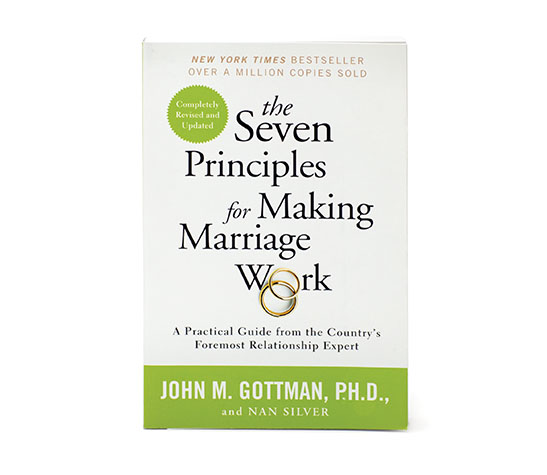
The concept of Love Languages and how this might impact your relationships
Esther Perel on many aspects of relationships - https://www.estherperel.com/ and this podcast
Daybreak is an online program that helps you change your relationship with alcohol through a supportive community, habit-change experiments, and one-on-one chat with health coaches. Daybreak has been developed by a group called Hello Sunday Morning an organisation, based in Sydney, Australia. Our mission is to change the world’s relationship with alcohol, one Sunday at a time.
Addiction - "When the mating season never ends" - The science behind pornography (and other) addiction (TED Talk)
and here is the updated, longer version (over 1 hour) of the presentation above: Your Brain on Porn
Launching pad for the website and numerous videos on pornography: Fight the New Drug
How to Quit Porn - 9 steps to quitting porn (but still self-pleasuring in a sex & relationship positive way) by Caitlin V
Some basic concepts from a Transactional Analysis approach to counselling:
- What events trigger your Parent and Child states?
- What prevents you from responding from an Adult state?
For a series of videos explaining Transactional Analysis in far greater detail: Ego states - Recognising the voices in your head
And to hear the thoughts of Eric Berne, the originator of TA (Transactional Analysis), watch this 1966 interview (incl. smoking, only masculine references and even 1960's dancing to the Beatles in the second part):
EMDR: Eye Movement Desensitization Reprocessing explained and demonstrated in a full-length session
(in a conference setting)
Bessel van der Kolk explains the power of EMDR with a case study - https://cdn.ce21.com/global/jti9yctp9ekvhsyauabeg.mp4
ADOPTION - Books and videos
- Nancy Verrier - Books: The Primal Wound + Coming Home to Self
- Nancy Verrier - Video: Is adoption Trauma?
- Nancy Verrier - Video: What is the primal wound
- Jeanette Yoffe YouTube channel
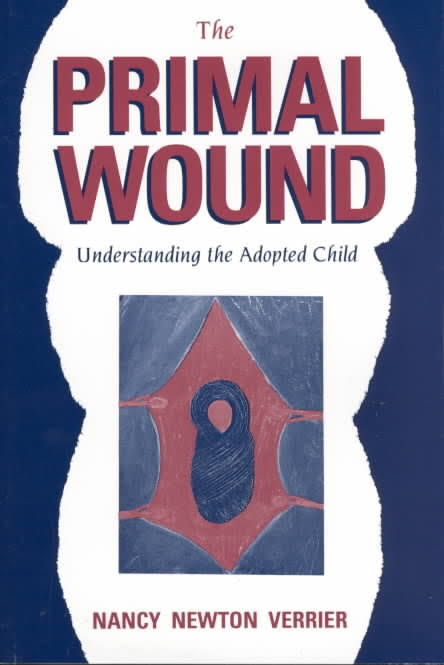
Adoption and addiction - possible links between the trauma of relinquishment and addictive behaviour by Paul Sunderland
and here is a further lecture by Paul Sunderland: Relinquishment and adoption - Understanding the impact of an early psychological wound
Brene Brown discusses the many aspects of vulnerability (including the role of shame) in this high-rankingTED Talk.
Dr Karyn Purvis outlines the background and major challenges facing children from hard places.
Dr Bruce Perry (author of "The Boy who was Raised as a Dog") speaks about trauma, brain and relationship.
What's it like living with Dissociative Identity Disorder (DID)
Dr Randy Frost outlines the three main features of classic hoarding.
Rainbow Lodge housing and rehabilitationprogram in Glebe (Sydney)
